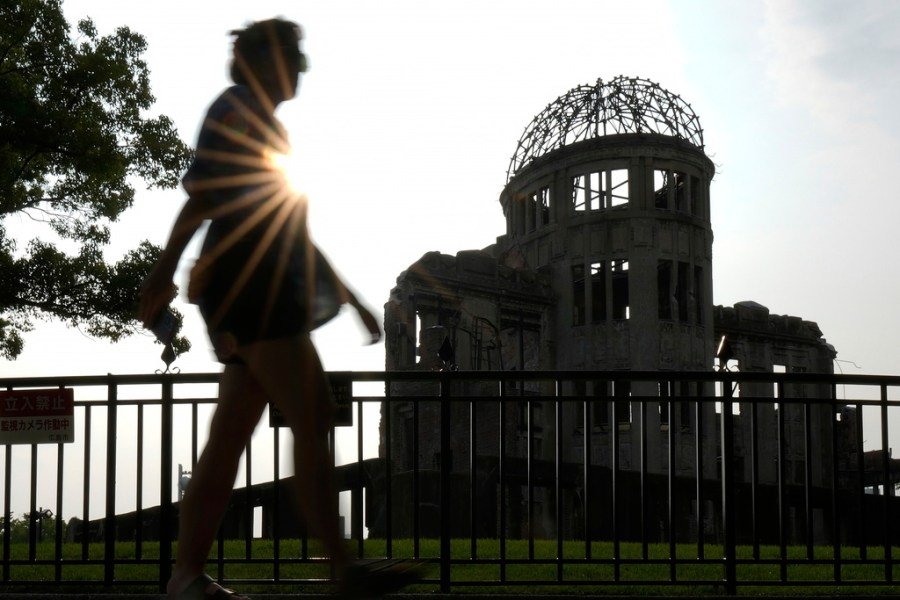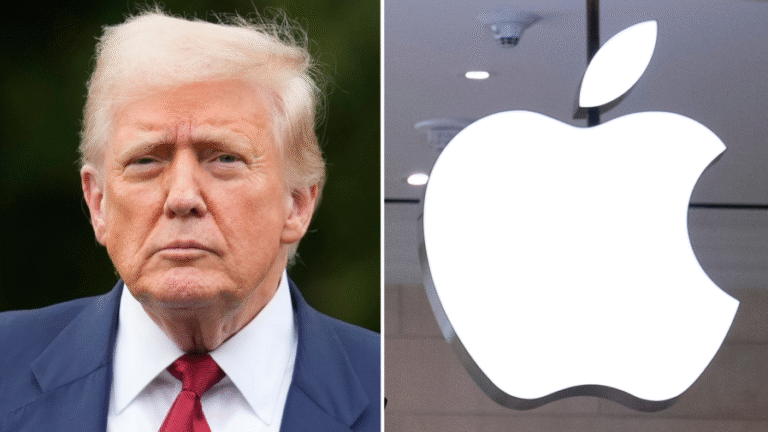
What is worse? Dropping one bomb that kills 70,000 people or one thousand bombs that kill 70,000 people? The answer is that they are both horrifically wrong.
As we reach the 80th anniversary of the bombing of Hiroshima, we will get the usual takes of people saying it was “right” to use atomic weapons and those who say it was “wrong” and therefore constitutes a war crime by U.S. forces. Some people will say the bombing of Hiroshima was a necessary evil, but I think they tend to focus on the word “necessary” and not the word “evil.”
As a Marine veteran, my view is that bombing people is always wrong, but that wars do happen and you always have to pursue the least-worst option when it comes to civilians. This is a lesson the U.S. has ignored throughout the years and Israel is currently ignoring. But when we examine how the atomic bombings of Japan came to be, we should realize that President Harry Turman was convinced it was the fastest way to stop the worst man-made calamity in history and acted to save lives. Hence it was not right, but it was the least-worst option.
Anyone who studied World War II, as I did at both Ohio State and Harvard, as well as reading countless books like many of you, has learned one shocking truth at some point — that both the German and Japanese governments knew they were going to lose the war years before they actually lost.
The Nazis, after being beaten at Stalingrad, tried to gain the initiative at Kursk and failed. After that, they knew they were in a defensive war of attrition and they didn’t have the numbers to win.
The Japanese knew that a quick victory against the U.S. was needed, as they would not be able to keep up with our ability to churn out planes and ships while drafting millions of men to wage war.
The Nazis’ quick victory in Russia didn’t happen. The Japanese lost sea and air superiority and realized that the island-hopping strategy of the Americans would bring them right to Japan’s doorstep.
Instead of finding an out, both governments doubled down and increased the killing. The Germans continued a war of annihilation, including mass killings of Jews. The Japanese took up a horrific strategy of killing everyone to horrify the Americans into quitting.
So the U.S. and its allies did something that changed the face of the war, embracing the meaning of the term “total war.” We didn’t just bomb civilians because they were next to bases or factories. We bombed them to make them “submit.” We killed millions of people, thinking at some point they would give up.
As we failed to learn until many decades and numerous wars later, people don’t take your side when you bomb them. So, both the Germans and Japanese supported their governments even more and allowed them more control over their lives, even if it meant more destruction.
In the Pacific, that left the U.S. government in a really bad spot with nothing but terrible options. They could invade Japan, which would cost millions of lives. They could blockade Japan, which was on the brink of mass starvation, also costing millions of lives. They could continue the fire-bombings they had been doing in places like Tokyo and Dresden, killing hundreds of thousands. They could give up on unconditional surrender, which could have left the Japanese under the emperor and the military autocracy that had led them into this war of obliteration.
Truman didn’t think dropping the bomb was good, but it was the least-worst option. It achieved the horrific effects it intended, and the Japanese realized they could not sacrifice millions to kill thousands of Americans. And that brings us to today.
I am not saying we need to drop a nuclear weapon on Gaza or any place. What I am saying is that time and time again, we should have learned from Hiroshima that you must pursue the least-worst option, so that you don’t end up making a decision like that again.
We didn’t understand that the fire bombings of Tokyo and Dresden actually pushed people to support their governments even more. In North Korea, we destroyed 85 percent of all buildings and up to 20 percent of the population, then wondered why North Koreans embraced the Kim family.
In Vietnam, we bombed villages with napalm and then were baffled when the Vietnamese joined or helped the Vietcong.
And in Gaza, Israel is bombing and starving civilians and wondering how Hamas still has a stranglehold on the population. Look, wars happen. It’s a bit naïve to think that humans won’t be fighting each other for something until the end of time. It is in our nature, unfortunately. And even more unfortunately, it seems that we always convince ourselves that the solution to ending wars is to ramp up killing to include civilians while ignoring it is the worst thing we can do.
Gaza doesn’t need any more bombs, much less a nuclear one. But we also need to learn that civilians will never respond positively to being bombed, starved or machine gunned. They will always side with those who don’t bomb, starve or machine gun them, even if they are the people that put them in that position like the leadership of the Nazis, the Japanese, North Koreans or Hamas.
The lesson we should have learned from Hiroshima is that we should always embrace the least-worst option, but also that we should never let things get to the point where dropping a nuclear weapon becomes the least-worst option.
Jos Joseph is a published writer and is a graduate of the Harvard Extension School and Ohio State University. He is a Marine veteran who served in Iraq. He currently lives in Anaheim, Calif.


